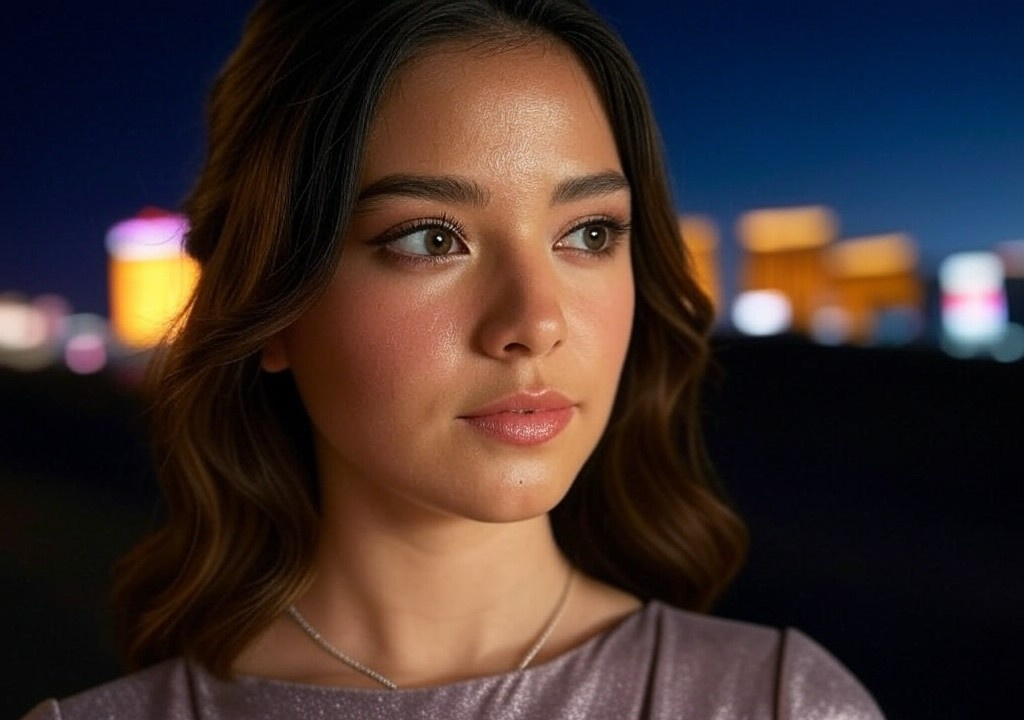If you were to peek into my life growing up in the neon shadow of the Las Vegas Strip, you’d find a kid who lingered in the wings of theaters, watching sequined dancers rehearse while sneaking gummy bears from my mom’s purse. Life in Vegas taught me two things early on: the world runs on illusions, and the magic always takes work. But nothing—no card trick, no pyrotechnics—prepared me for how a single dog-eared paperback could steal the spotlight from all that glitz and change how I saw love, relationships, and even myself.
The book? The Great Gatsby. And yes, I know every high school English teacher has probably already oversold this story of parties, pining, and tragedy. You’re probably thinking, “Aurora, wasn’t that the book where everyone made bad decisions while wearing boat shoes?” Sure, sure. But stay with me—because what I saw on those pages wasn’t just dramatic plot twists or champagne towers. I saw relationships in all their flawed, sparkling, heart-wrenching glory. And somehow, between Jay Gatsby’s longing and Daisy Buchanan’s indecision, I learned what not to do in my own love life.
The Green Light That Almost Messed Me Up
Let’s talk about the green light at the end of Daisy’s dock. You know, the one Gatsby stares at like it holds the meaning of life…or at least the key to his dream relationship. Growing up, I was surrounded by bigger-than-life hopes. Living in a city built on ambition, where performers literally bet it all every night to dazzle audiences, I understood believing in something so fiercely that you almost forget the cracks in the foundation. But Gatsby’s obsession with Daisy? It was a bright neon warning that unmistakably screamed, “Don’t confuse fantasies with reality.”
I can’t tell you how many times I’ve stood in my own version of that green-light moment. Like the time I clung to a guy because I convinced myself he was “perfect,” even though he couldn’t name a single Frank Sinatra song, despite bragging about his “amazing record collection.” Or the time I idolized someone who was charming as heck but flaked like my mom’s stage glitter anytime commitment came up. Gatsby reminded me that idealizing someone can eventually make you blind to who they really are—or to what the relationship is plainly missing.
Oh, and spoiler alert: chasing an idea of someone? It doesn’t end well. I learned this the hard way, much like Gatsby, but thankfully without a poolside showdown.
The Party Problem: When Grand Gestures Work Against You
If there’s one thing I know, it’s a good party. Vegas is the ultimate case study in how to throw the kind of bash that makes even the most social-media-savvy influencers feel like amateurs. So, naturally, I resonated with Gatsby’s parties—the way he hosted elaborate affairs just to impress Daisy. But here’s the thing no one talks about: chasing love through over-the-top gestures is a lot like staying seated at a poker table when you should’ve folded two hours ago. Sure, it looks fun in the movies, but can it guarantee a win? Not so much.
Once, I tried to win someone back by flying to New York while they were on a business trip (I promise this was less rom-com and more um, what were you thinking?). And much like Gatsby’s guest lists, it didn’t bring me any closer to my goal. (Spoiler: We broke up two months later.) That experience taught me what Gatsby never quite figured out: real connection isn’t loud, dramatic, or staged. It’s quiet moments—the ones you build over coffee and shared playlists, not under disco balls or elaborate brunches fueled by insecurity.
Daisy as a Warning, Not a Blueprint
Can we all agree that Daisy, for all her charm and 1920s elegance, wasn’t exactly Relationship Goals™? She may have been utterly magnetic, but she also served as a cautionary tale. Daisy taught me that glittering smiles, shared laughter, and inside jokes aren’t enough if the foundation isn’t there. There’s a scene where Gatsby looks at her and realizes she’ll never truly measure up to the image he’s painted in his head. That struck me.
Daisy reminded me of the kind of people I used to fall for: magnetic but emotionally unavailable. These were the ones who’d compliment my favorite Sinatra records or chase desert sunsets with me, but when push came to shove, they’d bail faster than a showgirl dodging backstage drama. Daisy reminded me that relationships built only on surface-level charm and daydreams are like sand in the Vegas wind—sparkling one moment, scattered the next.
What I Took from It All: Love, Loss, and Letting Go
At its heart, The Great Gatsby is a story about longing and how much we romanticize the past. And honestly? That one hit like a blackjack dealer flipping over the exact card you didn’t need. I’ve had relationships where I clung too tightly to the good parts, ignoring the parts where we stopped communicating or valued different things. Flashback to a guy I dated in my late 20s (let’s call him “Matt,” because he had serious Matt-kinda energy), who always waxed poetic about our “perfect first date.” I held on too, even when it was obvious we had nothing left in common aside from that one magical evening. If Gatsby taught me anything, it’s this: nostalgia isn’t a reason to stay. You don’t build the future by chasing the past.
What Gatsby Would Say About Love Today
I’d like to think that if Gatsby lived in the era of endless swiping and cute-but-cryptic Instagram captions, he’d struggle the same way we do today. Maybe he’d write a heartfelt “thinking of you” text, delete it, then re-write it as something vague (“lol, hope ur good”). Maybe he’d stage the perfect TikTok dance just hoping Daisy would scroll by. Gatsby’s greatest flaw was the way he worked so hard to love someone who didn’t love him back in the same way. And honestly? Haven’t we all been there, in some way or another?
Final Act: Be Your Own Green Light
Here’s the deal: it’s easy to pretend you’re immune to “Gatsby Syndrome,” pining after the wrong match or holding on too long to toxic relationships. But if you’ve lived it, there’s something liberating about acknowledging it—and letting it go. We all want love that sparkles like champagne on New Year’s Eve, but no one should have to work so hard for someone who doesn’t clearly meet them halfway.
So here’s my takeaway, dear reader: life doesn’t give out instruction manuals for relationships, but Fitzgerald gave us a pretty awesome cautionary tale wrapped in glitter and heartbreak. The next time you catch yourself chasing your own metaphorical green light, ask yourself: “Do they see me the same way I see them?” And if the answer’s no, it’s okay to let the light fade into the horizon. There’s no shortage of stars to explore—and maybe, just maybe, your next Jay or Daisy won’t even need you to throw a party to notice how amazing you are.




















